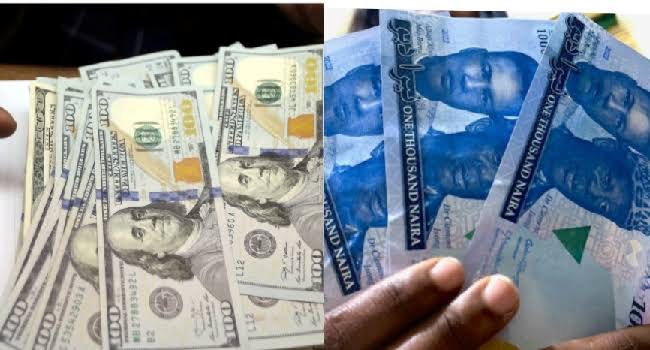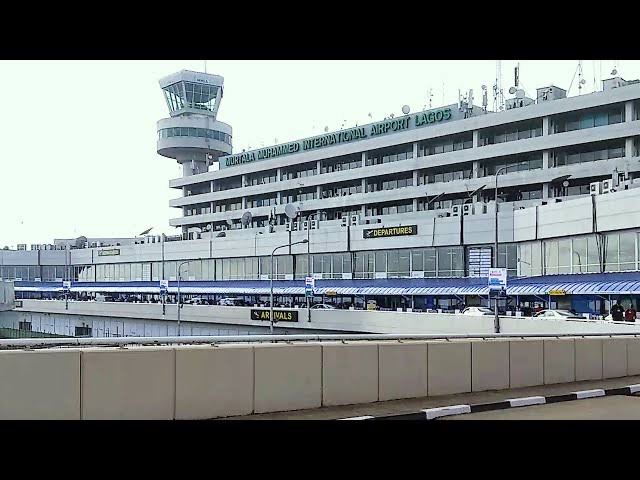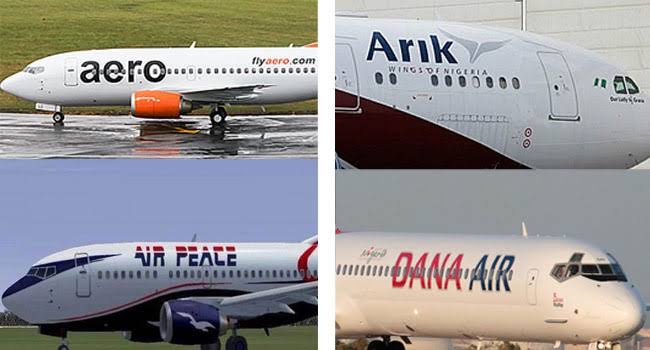Few aircraft have been used for domestic passenger flights in recent months as Nigerian airlines have been downsizing their fleets due to high maintenance costs. Some airlines have sent aircraft for maintenance but are unable to return them due to rising maintenance costs caused by the currency crisis.
Some have been forced to ground their aircraft as the Nigerian Civil Aviation Authority (NCAA) has been unable to send them for maintenance, resulting in fewer aircraft available to passengers. Additionally, the closure of Dana Airlines, a relatively low-cost airline with six aircraft, has also affected domestic fleets.
Ticket prices have increased on routes previously operated by Dana Airlines. The Lagos-Abuja route is more oversupplied with passengers than other routes as airlines that charged between 60,000 and 80,000 naira three months ago are now charging up to 200,000 naira or more for a one-way economy ticket to travel on this route.
With no other option, passengers had to pay the full price.

Passengers who tried to book tickets from Lagos to Abuja on Tuesday and Wednesday were unable to board as all airlines were fully booked. On Thursday morning, Valujet operated only two flights from Lagos to Abuja, one at 6:45 am and the other at 7:30 am.
Similarly, passengers were unable to take flights from Anambra to Abuja on Thursday. On Thursday, airlines were selling one-way economy tickets for the Asaba-Abuja route for up to 175,000 naira, up from about 70,000 naira three months ago.
Data obtained by Journalists from the NCAA on Thursday showed that 13 domestic airlines operate in Nigeria, including Aero, Air Peace, Arik, Azman, Dana, Green Africa, Ibom Air, Max Air, NG Eagle, Overland, Reno Air and United Nigerian Air and ValueJet together operate a total of 91 aircraft. The data also includes aircraft under maintenance.
A source close to the NCAA told Journalists that, excluding the grounded Dana Air, more than half of the 91 aircraft are under maintenance, putting strain on the few aircraft still in operation.
Five years ago, the company had a fleet of more than 120 aircraft, despite there being only 10 domestic airlines offering routes to Nigeria, according to a Journalist review. Travel experts say travel is now only for the wealthy due to the decline in aircraft, with monopolies emerging on certain routes.
“If you go to the counter at the domestic terminal, you may not be able to get a seat unless you bring at least 200,000 naira. What’s surprising is that some airlines are telling you they are selling premium economy when there is no such thing. They are selling business class and when you board the plane you will see they are selling economy class,” Olumide Ohunayo, industry analyst and head of research at Zenith Travels, told Journalists. Ohunayo said the issue has been around for a while and continues to occur on routes operated by Dana.
“The cancellation of Dana’s licence and the decommissioning of aircraft that cannot be maintained due to a lack of foreign currency have led to a reduction in the size of the fleet. The grounding of Dana is a big problem.
We need to find a way to get around this problem of capacity and available seats. Passenger numbers are not increasing but the supply of aircraft is decreasing. Passengers are really suffering during this time,” he said.
Managing Director of Gina Travels and Tours Ltd, Ndukwe Ginika Ogechi, told Journalists that ticket prices have continued to rise in recent weeks while seats have been reduced on underserved routes due to lack of available aircraft.

“My customers have complained as it has become difficult to get flights to Asaba, Enugu, Owerri, and some northern destinations as airlines that previously offered more than two flights to these destinations are now offering only one flight a day or not at all,” Ogechi said.
One airline, who did not wish to be quoted, told Journalists that flights have been filling up recently due to capacity issues. An Air Peace official said the airline understands the situation and is looking to increase flights on some domestic routes once some of its aircraft return from maintenance.
“The Abuja-bound route is the most heavily traveled route in Nigeria as there are also plenty of business opportunities linked to the destination, from major economic summits to political events this month,” the source added.
The airline sells tickets in naira but pays for spare parts, aircraft maintenance, and insurance in dollars. They are suffering from rising operational costs due to the drastic devaluation of the naira against the dollar in the official and parallel markets.
When the naira to dollar exchange rate was 400 naira, airlines paid 200 to 400 million naira to do a C-check. At the current exchange rate of about 1,507 naira to dollar, airlines have to pay 800 to 1.5 billion naira to do a C-check for one aircraft.
Airlines were already paying high insurance premiums as Nigeria is considered a high-risk area and local insurance companies in Nigeria are allegedly charging high premiums.
A Journalist survey revealed that Nigerian airlines pay 8 to 10 percent of aircraft insurance premiums, while airlines in Ghana, South Africa, and other African countries pay only 2 to 3 percent. Moreover, European and US airlines pay 0.5-1% to insure the same aircraft.
Nigerian airlines pay an average of $1 million per year to insure a B737-300 aircraft, while Ghanaian and US airlines pay $200,000-300,000 to insure the same aircraft. When the exchange rate rises, airlines pay higher premiums.

































